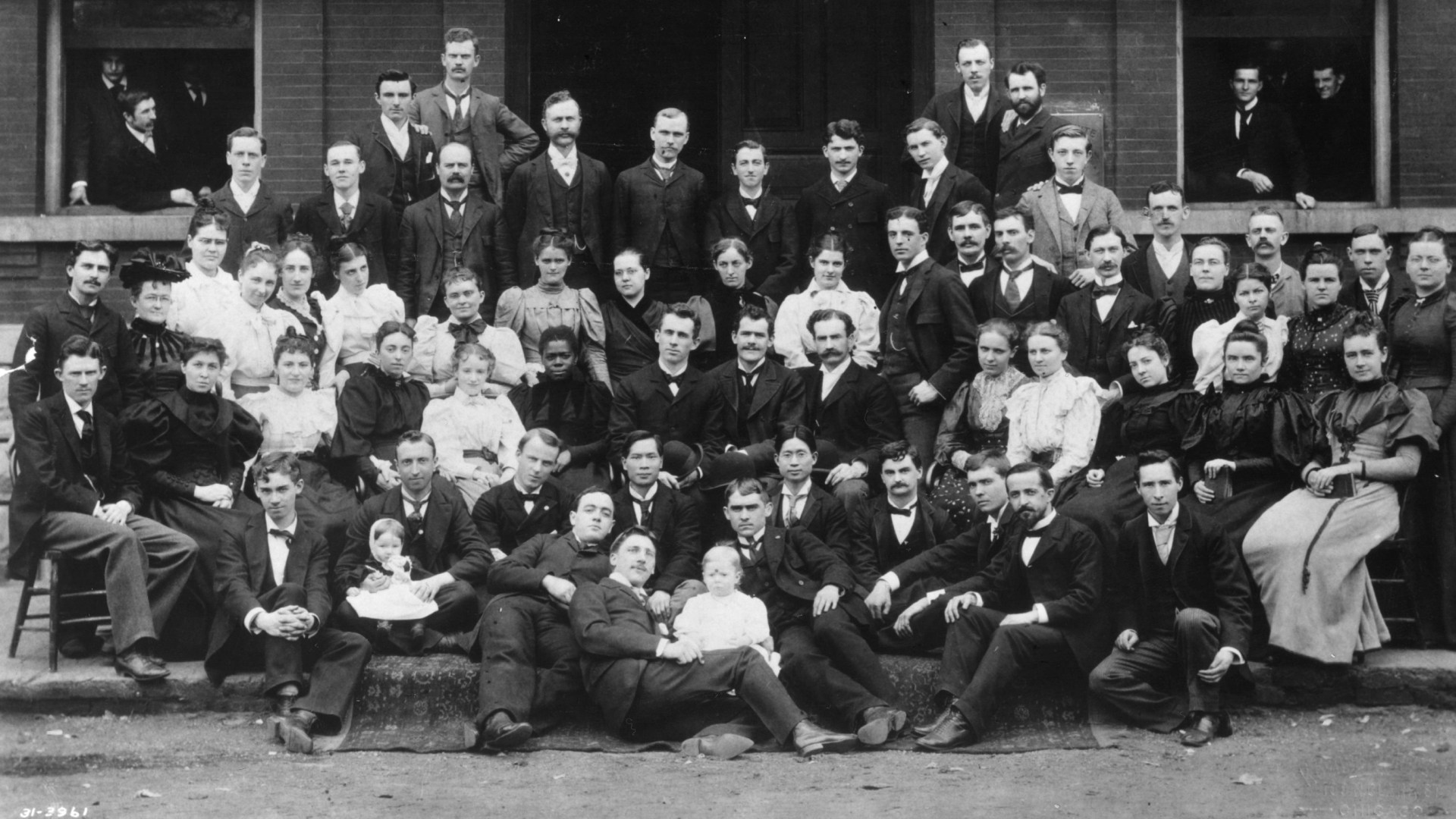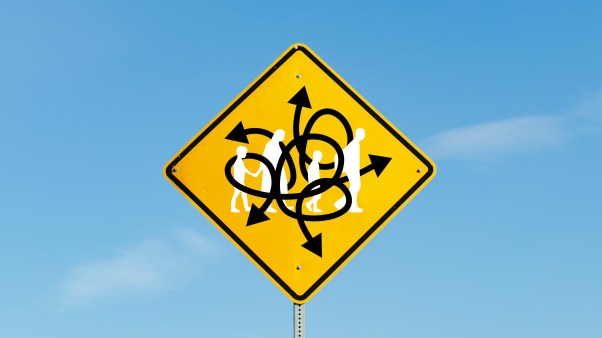She was one black face in a sea of white.
In 1895, Mary McLeod Bethune was the only African American to attend Moody Bible Institute in Chicago. In her class photo, there is one face that does not match.
I wonder how difficult it was for her—then named Mary McLeod—to be the only student attending evangelist D. L. Moody’s Bible school whose parents were slaves. Bethune was a pioneer, determined to get an education and become a missionary in Africa.
She forged her way in a predominantly white world, only to be rejected as a missionary to Africa (due to her race) following graduation. Bethune pushed forward, starting a school for girls, founding a college, and advising Presidents on various issues.
As I read her story, I realize that it is impossible for me to relate.
Certainly, as a woman, I have faced challenges. I have struggled to be taken seriously at times. I’ve sat in meetings surrounded by men in suits and ties. I’ve been asked to give the “female” perspective and nominated to chair policy development on sexual harassment. Yet, I don’t really know what it means to be without the natural advantages I have been given because I am white.
I doubt “white privilege” was brought up when Bethune was the lone African American student at Moody. Even now, people balk at the phrase, wanting to deny that such a phenomenon could apply to an entire race of people. After a flyer for a student-led event on race and privilege was defaced at Moody last week, Moody’s president released a statement affirming the event, decrying the misunderstanding of white privilege, and addressing the need for more ethnic diversity on campus.
He wrote, “People who are white, such as myself, because we are of the majority culture, often fail to understand the privileges we enjoy due to our skin color, for it is all we have ever known. Therefore, the conversation hosted on our campus last week is part of an ongoing effort to bring greater campus-wide understanding to the issue and I applaud and affirm its purpose.”
Like him, I must admit that “white privilege” does describe my situation accurately. As a white woman living in the United States, I do not fight the same fight as my black sisters.
I do not know what it means to be identified, first and foremost, by the color of my skin. It’s something I can never really know. During a cross-cultural experience on the tiny island of Okinawa, Japan, I felt like a lone American outsider. I became aware of how I spoke and looked different and how people treated me as a result. Still, this fascinating but disconcerting experience was temporary—not my lifelong identity in the country I call home.
As the majority, we do not realize that the air we breathe, the conversations we have, the food we eat, are all representative of our tradition-filled “white” environment. In her article, “White Privilege: Unpacking the Invisible Knapsack,” Peggy McIntosh explains it well:
My schooling gave me no training in seeing myself as an oppressor, as an unfairly advantaged person, or as a participant in a damaged culture. I was taught to see myself as an individual whose moral state depended on her individual moral will.
McIntosh explained that, as whites, we have been taught to think our lives are “morally neutral.” We focus on our own success feeling that it will benefit others, allowing “them” to become more like “us.” That attitude explains why the concept of white privilege is difficult for me to even comprehend.
I think that acknowledging the existence of white privilege is not and should not be about assigning blame. It is not my fault that I was born with white skin any more than it is another’s fault that she was born black. We are who we are. We cannot help it. It was chosen for us.
But the fact that I am a Christian adds another layer and another difficult question. As believers, we know that our identity in Christ goes deeper than our race or our gender. Should being a Christian mean that these issues go away or are not worth discussing?
I believe that we are united in Christ and that in the body of Christ there are no superficial divisions. Every Christian community to which I have belonged has held Galatians 3:28 as a banner demanding unity and acceptance and love: “There is neither Jew nor Gentile, neither slave nor free, nor is there male or female, for you are all one in Christ Jesus.”
But sometimes we also use that verse incorrectly. We want to erase differences. We want to ignore what makes us unique. We have used it to stifle hard discussions about hurt and pain and oppression.
The question is not whether it is my fault or whether the Bible says white privilege should not exist. The question is how will I react?
Will I shut my ears in self-defense, or will I listen to hard things? Will I stay in my safe bubble, or will I take a risk by extending a hand? Will I walk into a neighborhood that is not my own? Will I defend the helpless? Will I step out of my own skin for just a moment? Will I take the hand of my black friend and be a part of her story?
It is recorded that D. L. Moody called Bethune into his office to ask about the conditions facing “her people.” I like to think that this was a good experience for her, but it was probably a bit terrifying for a young, female student. Even in his well-intended inquiry, Moody showed an attitude of white privilege. How could this one young African American woman possibly represent her entire race?
And, yet she did—at least to him. Despite what we might think about the appropriateness of the question itself, I am glad he asked. And, I hope he listened.
We need to listen better. As the majority culture, we need to resist putting up our defenses when we hear words like “white privilege.” It doesn’t mean that we, individually, have had every advantage. It does mean that we have experienced years and years of being a dominant culture. It means that now it is our turn to listen.
As I followed a recent social media discussion on this issue—a conversation that flooded Twitter with questions, accusation, anger, and regret, I realized we still have far to go. As believers, we are truly one. Because of Christ, one day, these barriers will disappear.
In the meantime, we must look unflinchingly at our differences. We must lay down our pride, and listen. We must learn. Even when it is hard.
Jamie Janosz is a wife, mother, professor, and writer. She works at Moody Bible Institute in Chicago, and is the author of When Others Shuddered: Eight Women Who Refused to Give Up, which includes the story of Mary McLeod Bethune.
Last year, for Women’s History Month, Jamie wrote for Her.meneutics about African American evangelist Amanda Berry Smith.









